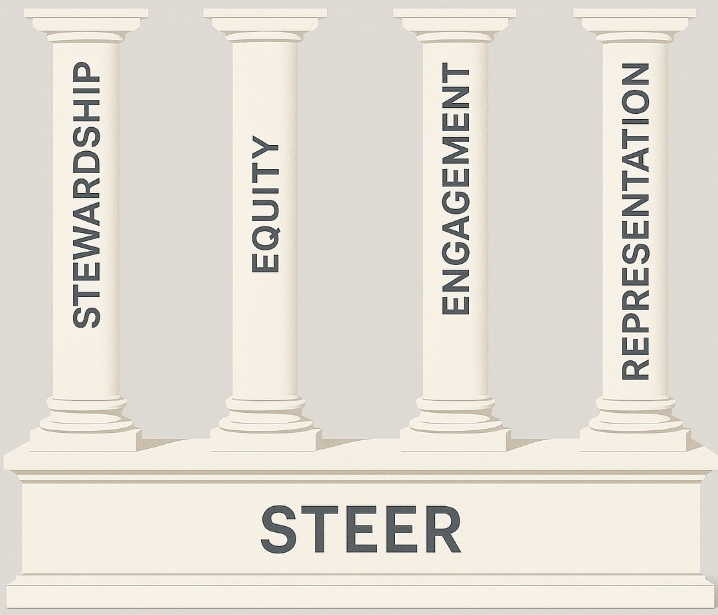
As progressives, our aim is to promote a fundamentally equal society, one whose members are free, safe, healthy, and prosperous. Promoting such a society requires following four critical principles, without which the possibility of a progressive society becomes unlikely.
The first principle is stewardship. This means that society's leaders, especially government leaders, see themselves as servants and caretakers of the people. While they may identify as part of a party or faction, they do not serve the members of that group. Rather, they understand that ultimately they work for the people, in the interest of the people, and are accountable to the people, with the basis of this accountability being the Constitution.
The next principle is equity. In order for the interests of the people to be adequately served, the people need sufficient resources, support, and protections from their governing body, all of which should be distributed fairly and equitably to the people according to which of their fundamental rights are insecure, or less secure than others. Equity is rooted in equality and is the basis for justice.
The third principle is engagement. The people, whom leaders must be committed to serving, have a responsibility and duty to hold their leaders accountable. Without such engagement, leaders not only lose touch with the voice of the people, but fall into the danger of focusing on their own political future rather than on the future well-being of the people.
The fourth and final principle is representation. Society's leaders cannot effectively serve the interests of the people if they have no means by which to listen to them. This requires a system in which the interests of all the people are represented.
These four principles make up the acronym STEER - Stewardship, Equity, Engagement, and Representation. The principles serve as the foundation for progressive action, steering us towards becoming a more progressive society.
